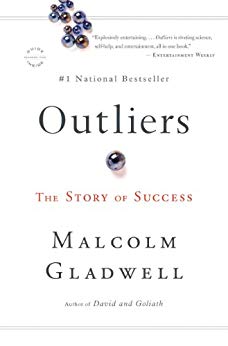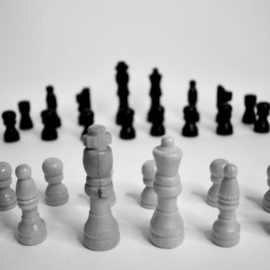

This article is an excerpt from the Shortform summary of "Outliers" by Malcolm Gladwell. Shortform has the world's best summaries of books you should be reading.
Like this article? Sign up for a free trial here .
What is the relative age effect? Why does when you’re born affect how successful you are later in life? Learn how your birth date affects your later outcomes, because of the relative age effect.
The Relative Age Effect describes a phenomenon where a child who is born in the early part of a selection period tends to be more successful than a child born late in the selection period. But how does it arise? We’ll discuss the psychological biases, and two examples from Outliers.
The Foundation of Relative Age Effect: Self-Fulfilling Prophecies
A self-fulfilling prophecy occurs when we think something’s true, and it actually becomes true because of our belief in it. In other words, belief influences reality.
The placebo effect is an example of a self-fulfilling prophecy: If you swallow a sugar pill but you believe you’re swallowing a pill that cures headaches, the intensity and frequency of your headaches may decrease. If your head feels better, it’s not because the pill cured you. Rather, it’s because you believed the pill would cure you, and this belief in itself makes you feel better.
This is critical for the Relative Age Effect. Individuals who are taught (directly or indirectly) that they are gifted, talented, or smart tend to live up to that expectation. They believe that they are talented, and therefore act like they are talented, which leads to them developing actual talent.
Likewise, individuals who are told they are unintelligent or unremarkable will tend to believe it. They then act unintelligent and fail to foster their actual intelligence.
Relative Age Effect Example #1: Canadian Hockey Players
Hockey in Canada is a meritocracy. Thousands of little boys play at the novice levels, but only the best graduate up the ranks to the elite league, Major Junior A. There’s no way to cheat the system—it doesn’t matter who your parents are or how much money they have or where you grew up. To get chosen to play at the next level, you must have the requisite skills. This is a fair system, giving equal opportunity to all players to demonstrate their skills.
But there’s one oddity. In any group of elite hockey players, 40% of players will have been born in January, February, or March. Is this a coincidence?
As it turns out, the Canadian hockey pipeline is not as meritocratic as it appears. The system does not give equal opportunities to everyone. Kids born in January, February, or March have an advantage, especially over those born in October, November, or December.
The cut-off date for playing hockey in a given age-class in Canada is January 1st. This means that a child who was born on December 31, 2007 could play alongside somebody who was born on January 1, 2007 and is a full year older.
In childhood, a year makes a big difference. An extra year’s worth of growth and development means that players with January and February birthdays are likely significantly larger, stronger, and more coordinated than their November- and December-born peers.
The Self-Fulfilling Prophecy
A late-winter birthday is a hockey player’s first window of opportunity. A seemingly irrelevant detail becomes a clear advantage.
Because these players are larger and stronger, coaches and scouts believe that they have the most natural talent, even when their skills are ordinary, relative to their age. This is how the Relative Age Effect starts.
Scouts select these players for elite teams and coaches groom them for higher-level leagues by devoting more attention to the development of their skills. Because people believed these players were more talented, they became more talented.
The Relative Age Effect Deepens
This early advantage snowballs in the Relative Age Effect. Children whom coaches and scouts single out as better athletes due to the arbitrary advantage of their birthdays receive the resources and support to become better athletes. Their advantage snowballs.
Smaller players are overlooked and they don’t received resources or support. As a result, they don’t perform as well, which makes sure they get even less attention and support. Their disadvantage snowballs.
Of course, not all the best hockey players are born in late winter. But enough of a pattern exists that we can’t contribute the success of some to talent alone.
Factors beyond your control often dictate whether or not you succeed.
Relative Age Effect Example #2: Birthdays for U.S. Students
Birthdays don’t just contribute to the successes of Canadian hockey players. Among students in the same grade, older students (those born early in the calendar year rather than in December) tend to perform better academically. Again, this discrepancy has to do with cutoff dates in the Relative Age Effect.
The Self-Fulfilling Prophecy Starts the Relative Age Effect
Young children pass through the stages of development quickly. When a child begins kindergarten, an age difference of even a few months significantly affects a child’s readiness to learn.
When it comes to starting school, a lot of parents think the sooner the better. But there are advantages to waiting to benefit from the Relative Age Effect. If your child turns 5 in December, he may be in a grade with kids born in January or February of the same year, meaning many of his peers will be older. Like the Canadian hockey players born in January, children born early in the calendar year are more developmentally mature. Their brains are more developed and they pick up academic skills more quickly.
This initial opportunity paves the way for older students to be singled out for gifted programs and advanced classes, kicking off the Relative Age Effect. Because teachers believe a child is more academically capable than her peers (because she’s faster at picking up skills), she becomes more academically capable than her peers (due to the advanced education and opportunities teachers give her).
(Shortform note: Cutoff dates have shifted since Gladwell wrote Outliers in 2008, but while the advantaged birthday months may be different in some states, the principle that the oldest kids in each grade benefit the most still applies.)
Accumulative Advantage Deepens the Relative Age Effect
The advantages given to older students through the Relative Age Effect snowballs, and the gap between the academic performance of older and younger peers widens as kids get older. A study of 4th graders tested in math and science found that the oldest children in the grade scored 4-12 percentile points higher than the youngest, even when the youngest and oldest were intellectually equivalent.
Surprisingly, this academic gap persists even into college. One study found that the youngest students in each class at 4-year colleges were underrepresented by 11.6%. For some kids, the initial disadvantage of being a little younger than their peers turns into the large disadvantage of not going to college.
These birth-date-based systems are not meant to privilege some birthdays over others, but they do. Kids born at the “wrong” time of year miss out on opportunities to live up to their potential. By changing these systems and avoiding the Relative Age Effect, we could create a more equal playing field.
- We could group young hockey players into three age groups per year, rather than one. This would allow athletes to play with more evenly-matched peers.
- We could set up an education system like that of Denmark’s, where ability-grouping doesn’t start until age ten, when maturity differences have evened out.
———End of Preview———

Like what you just read? Read the rest of the world's best summary of "Outliers" at Shortform . Learn the book's critical concepts in 20 minutes or less .
Here's what you'll find in our full Outliers summary :
- What makes some people outliers, and most others not
- Why some genius outliers end up failing in life
- Why Asians are good at math, and other curiosities of culture






